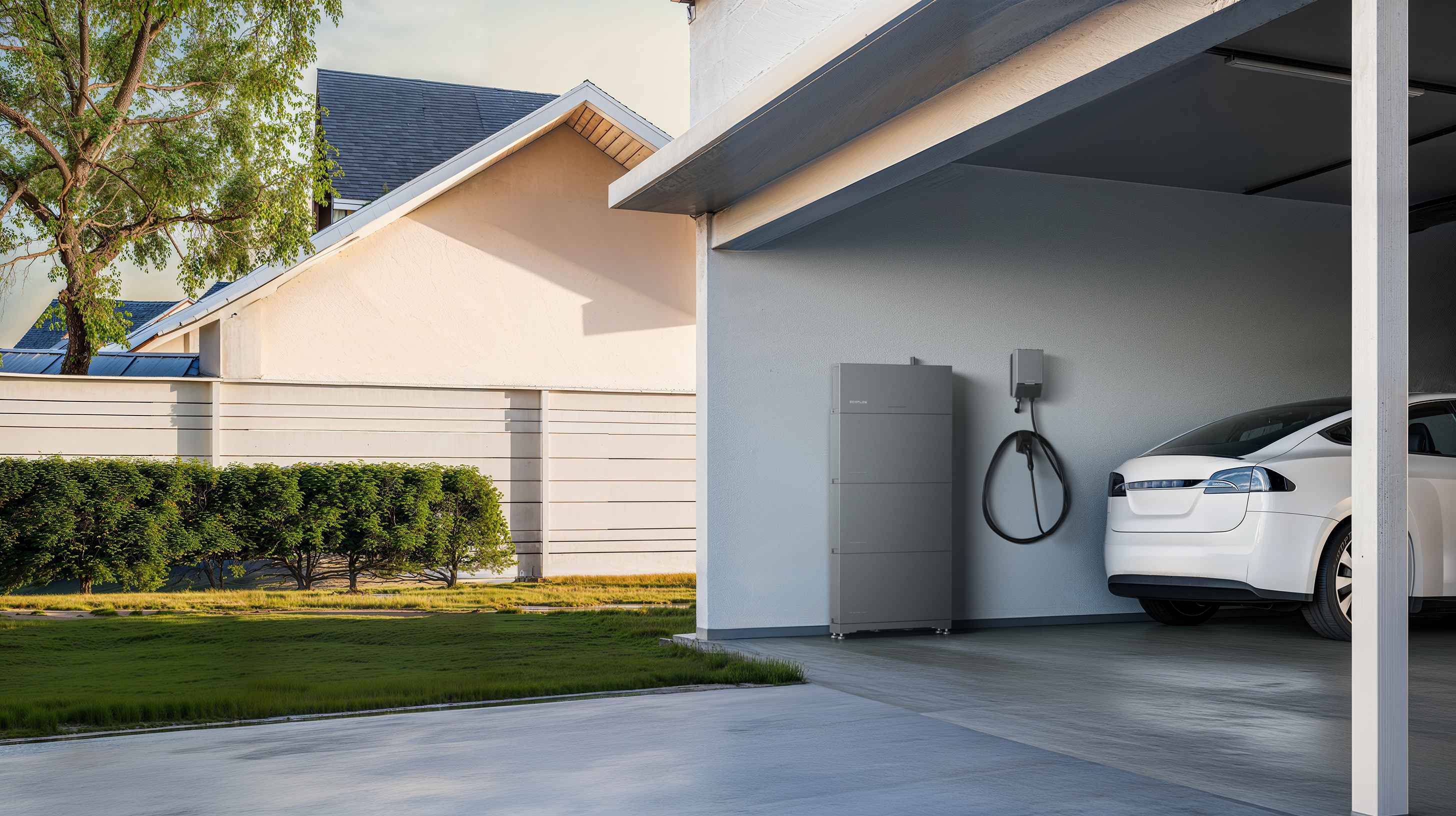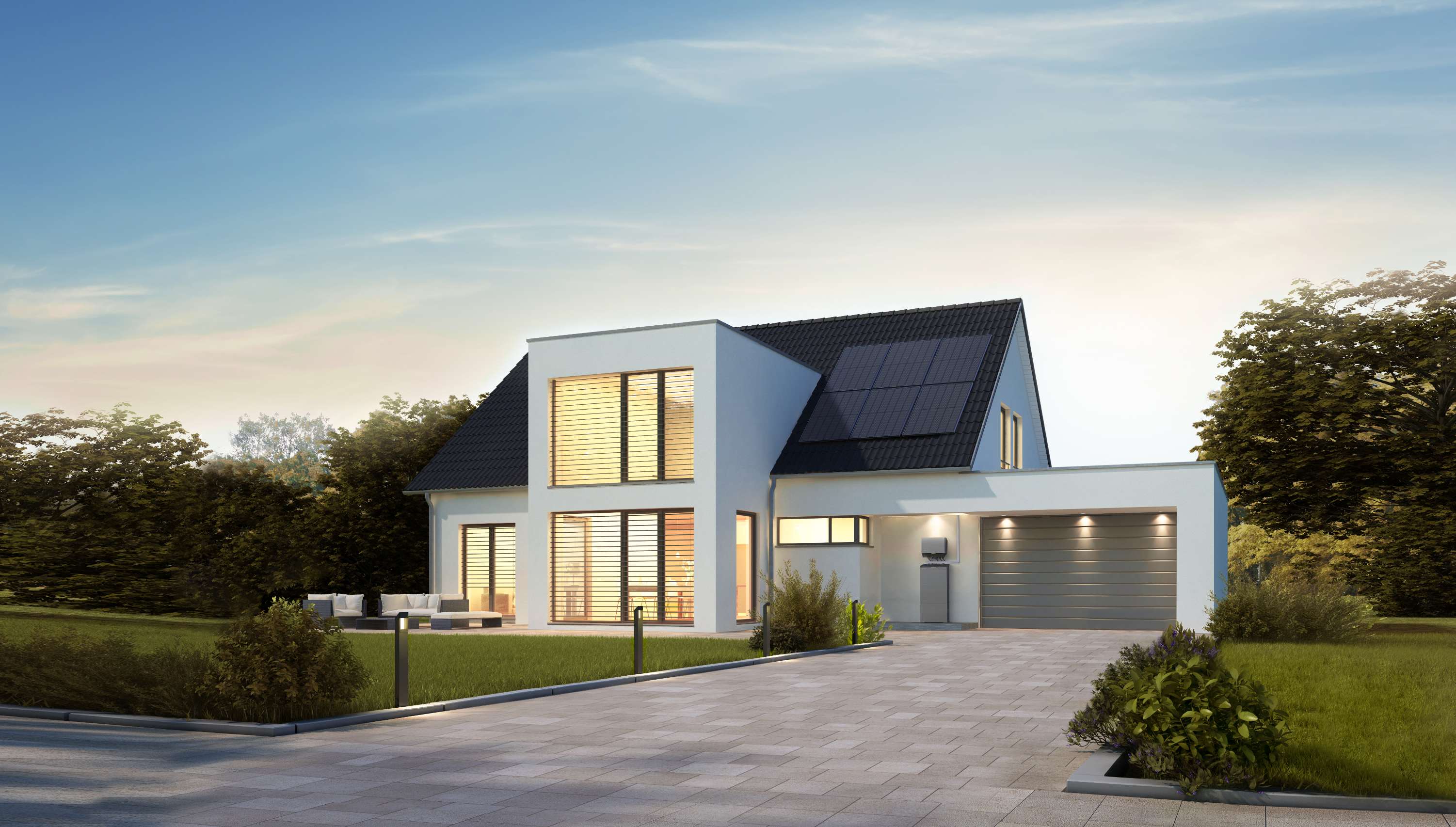Can Solar Panels Power a House?
Solar power is becoming an increasingly popular solution for powering homes in the UK, and for good reason. With the dramatic rise in electricity costs in recent years and a growing focus on sustainability, solar panels provide a renewable way to generate electricity.
These systems harness the sun’s energy, converting it into usable electricity for your daily needs. But how do they work, and can they support the energy demands of a modern household? This article will explore how it works, its ability to power a home, and tips to help optimise your system for maximum efficiency and cost savings.
Let’s dive in and start saving.
What Is Solar Power?
Solar power is energy from the sun that is converted into electric or thermal (heat) energy. It is a completely renewable energy source that will be available as long as the sun keeps shining. It’s clean and green, produces no carbon emissions, and can be used to run our homes, appliances, and even our electric cars.
Thermal solar panels create heat to heat your home, and the new EcoFlow PowerHeat is an air-to-water heat pump that can also run on solar and significantly reduce your heating and cooling costs.
How Do Solar Panels Work?
Solar panels work by capturing incoming electromagnetic radiation from the sun in the form of photons. These photons interact with semiconductor materials, usually silicon, inside the photovoltaic cells, freeing electrons. Those electrons then flow through the panels as one-way DC electricity. That current is then collected and directed into an inverter.
The inverter converts DC (direct current) into AC (alternating current). Once in AC form, it goes into your household electrical system, which you can use to power your home and appliances.
Most photovoltaic panels generate anywhere from about 100 to 400 watts of electricity during peak sunlight when the sun shines brightly directly overhead. Most systems in the UK utilise 8-12 panels and can generate 2,450 – 3,000 kilowatt hours (kWh) annually, depending on your location and how much direct sunlight they receive.
Photovoltaics will significantly increase your home’s energy efficiency rating, saving you money on your monthly bills and increasing your home’s resale value.
Can You Run a House Just on Solar Panels in the UK?
Yes, you can run an entire house with a solar array that’s large enough. However, you would also need solar battery storage connected to your panels. The batteries store excess power you produce during the day while the sun is shining, so you can use it at night when the panels are not producing any or during bad weather when they are not making enough to meet your needs.
If you already have photovoltaics, you can easily do a home battery retrofit and add the battery storage. That process is made very simple with an EcoFlow PowerOcean DC Fit that allows you to simply add batteries to your current system without changing anything on your current system, ensuring a quick connection and maximum efficiency.
You can run an entire home with enough photovoltaic panels and battery storage. If you are still on the grid and signed up for the Smart Export Guarantee (SEG), you could even have negative electricity bills where you get paid for producing power.
How Much Power Do Electric Appliances Need To Run?
Different appliances use different amounts of power depending on their wattage and the time they need to run. The higher their wattage and the more time they run, the more electricity they use and the more it costs you.
Here are some of the most common appliances and their energy usage per use or per day. Note that 1000W = 1kW. To get kilowatt-hours (kWh), multiply the kW by the time it runs.
- Washing machine at 2200W for 1 hour = 2.2 kWh
- Dryer at 800W for 45 minutes = 0.6 kWh
- Iron at 3000W for 20 minutes = 1 kWh
- Kettle at 3000W for 1 minute = 0.05 kWh
- Coffee maker at 1710W for 90 seconds (per cup) = 0.043 kWh
- Blender at 400W for 5 minutes = 0.033 kWh
- Toaster (2 slice) at 900W for 5 minutes = 0.075 kWh
- Fridge freezer at 150W for 8 hours (compressor doesn’t run continuously) = 1.2 kWh
- Microwave at 1500W for 3 minutes = 0.075 kWh
- Dishwasher at 2200W for 2 hours = 4.4 kWh
- Electric oven at 3000W for 1 hour = 3 kWh
- Desktop computer at 300W for 8 hours = 2.4 kWh
- Laptop at 50W for 8 hours = 0.4 kWh
- 55" TV at 110W for 3 hours = 0.33 kWh
- Portable heater at 2000W for 1 hour = 2 kWh or for 8 hours = 16kWh
- 10 incandescent lightbulbs at 600W total for 8 hours = 4.8 kWh
- 10 LED lightbulbs at 100W total for 8 hours = 0.8 kWh
- Hot tub at 6000W for 1 hour = 6 kWh
As you can see, the higher the watts and the longer it runs, the more your daily kWh will be. This is where newer, energy-efficient appliances can save a lot of money compared to older models. Also, consider the size of the appliance. For instance, the larger the fridge, toaster, or dryer, the more power it will consume.

How To Make the Most Out of Solar Panels
- Professional installation with photovoltaic panels in the correct orientation and angle will maximise energy efficiency. It’s because our photovoltaics are the most efficient when the sun is directly overhead, which usually means a south-facing orientation. They should also be angled correctly to capture the most direct rays possible, which varies with the season. In the summer, the sun is higher in the sky than in the winter, so if you can adjust your angles for the season, you can further maximise your production.
- Pair your solar panels with the EcoFlow PowerOcean (Three-Phase) battery storage system so that you can still use clean energy at night or during bad weather when your panels are not producing any. If you have single-phase, no worries; the EcoFlow PowerOcean (Single-Phase) has got you covered. Battery storage is critical to help you minimise the effects of the UK electricity tariffs that have risen dramatically in recent years.
- Routine maintenance is essential with anything. Fortunately, maintenance with solar energy is minimal and easy. All you need to do is clean any dust, debris, or leaves off of your panels once or twice a year and remove the snow in winter. Finally, check the connections while you are at it to ensure they are secure and have not been chewed on by animals.
- Reduce the amount of electricity you use in your home. For instance, install energy-efficient appliances, use LED lighting, and insulate your home better. Also, take advantage of innovative apps, smart plugs, and smart appliances that can help you monitor and reduce your power usage. The less power you use, the less you need to produce, and the more money you can save!
- Take advantage of the Smart Export Guarantee (SEG), where you sell excess energy back to the grid. It allows grid-tied systems to reduce their electricity costs at night by getting credit for excess they produce during the day that isn’t being used to run their homes. You must register with an electricity provider who is an SEG licensee to participate in the program. Each provider will have different requirements for signing up.
Frequently Asked Questions
- Can a Home Run Only on Solar?Absolutely. With a large enough solar array and a suitable battery storage system, you can go completely off-grid and still have plenty of electricity to run your entire home. Since batteries are expandable, even large homes with heavy power usage can still run their entire homes on solar.

Final Thoughts
Solar panels can easily power your entire home with the proper setup, especially when installed with a reliable battery storage system. You can maximise your savings and minimise your environmental impact by reducing electricity consumption, installing energy-efficient appliances, and taking advantage of incentives like the Smart Export Guarantee.
Whether you're looking to go fully off-grid or just reduce your reliance on traditional electricity sources, solutions like the EcoFlow PowerOcean make it easier than ever to embrace renewable energy. Now, get ready to take the next step toward energy independence and a cleaner, greener, and more affordable future.




